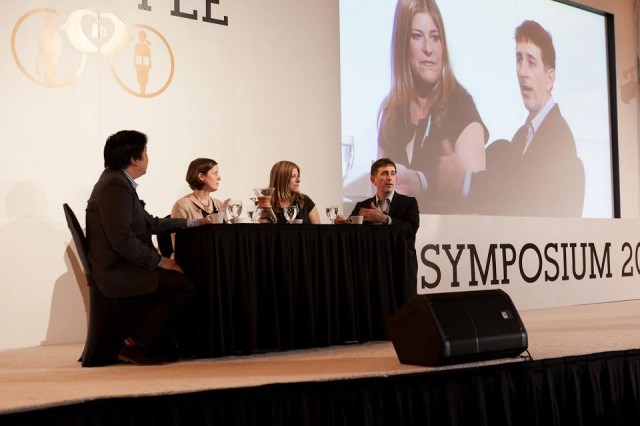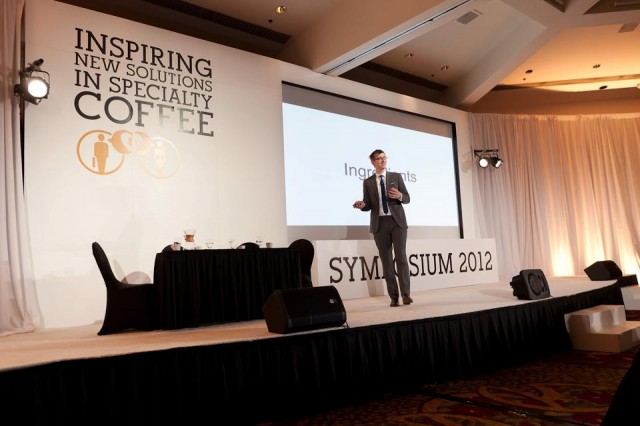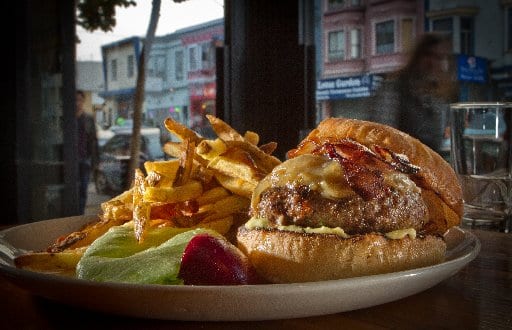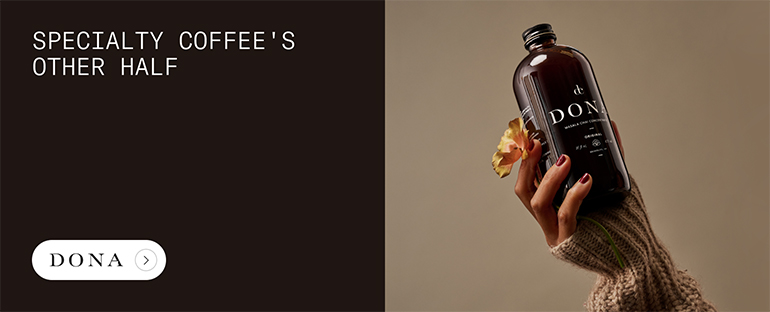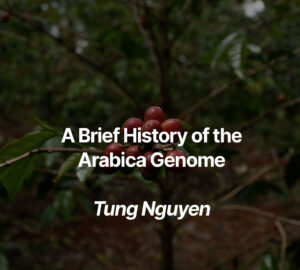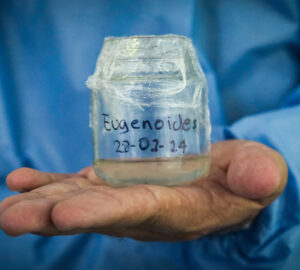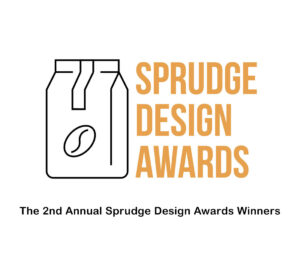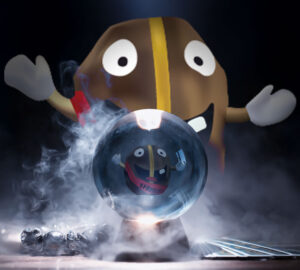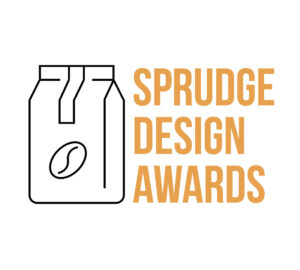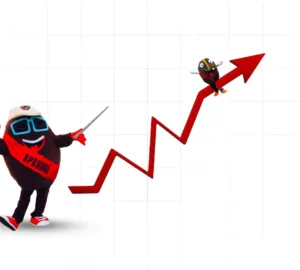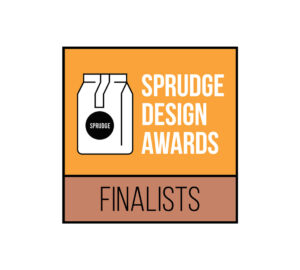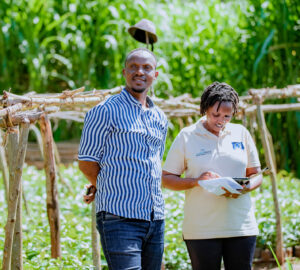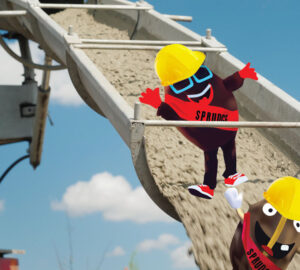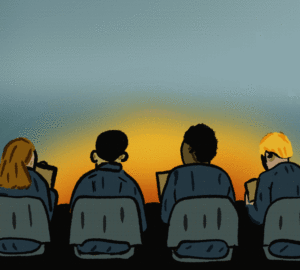The final installment in Erin Meister‘s best-in-the-business Symposium 2012 coverage.
The tables were turned – and turned hard! – on a crowd of coffee people in a lunch coma the afternoon of Day 2, with a twofer of flipped philosophy on media and consumer perspectives of coffee, and a game-changing argument about improving and redefining the retail experience.
The first, a panel moderated by Wrecking Ball Roaster’s Nick Cho, comprised three prominent voices in the outside-coffee world: Seattle Times columnist Melissa Allison, Cool Hunting blogger Julie Woolfson, and the omni-contributive Oliver Strand. As writers at the mercy of cranky editors, rapid-fire deadlines, and superfickle consumer trends, what do these three media taste-makers think are the important stories to tell in coffee, from the angle of reader interest?
“The ‘artisinal food’ movement has taken hold of everybody,” Woolfson offered, speaking to Cool Hunting’s drive toward finding the hippest new spot, the most eye-catching new package, and the visual story behind the coffee and its place in a person’s individual design and lifestyle landscape. “More and more I hear people shifting their conversations from food and cocktails to ‘Where are you drinking coffee?’ and ‘Where is the best coffee?'”
Meanwhile, Allison spoke to the difficulties she faces as a business writer in a city that derives a significant amount of its economic health and growth from the coffee industry: “I’m used to writing for a business reader. When I write about Starbucks, I feel like the traditional business readers are getting what they want. But the independent coffeehouse customers and baristas… That’s a different story.”
“The coffee’s fun, but the coffee industry seems to be unhappy being told that coffee’s fun,” Strand said, laying a gentle smackdown on the sometimes blinding self-importance that specialty coffee industry insiders can exude when insisting that our “stories” be told in infinite, intimate detail.
“The [specialty coffee] industry has taken what is a very complicated product and made it more complicated. Most other industries take complicated products and make them simpler in terms of perception, in terms of understanding.”
Despite himself, Strand even drew comparisons between coffee and wine: “Wine is incredibly complicated, but it tastes great, and the story and narrative is very easy.” He would go on to say: “I think the wine analogy is a horrible idea and a terrible mistake [in coffee],” because of the imprecise use of a largely misappropriated vocabulary that it encourages. “The best wine is better than the best coffee, and you’re never going to match it. It’s never going to happen. So use your own words. Cheese isn’t trying to be like ‘cow wine,’ it has its own language.”
Meanwhile, chucking wine out the window, Square Mile Coffee Roasters co-owner and former World Barista Champion James Hoffmann compared espressos and hamburgers. We’ve all had the $1 hamburger, and the vast majority of us have also had a mind-blowing $15 hamburger: We understand the inherent differences between the two experiences because of the ingredients used, the environment each one is native to, and the way that it’s presented and priced.
But what about espresso? “What would you pay for a good espresso?” Hoffmann asked. “About 1.6UKD? That number doesn’t really matter. Compare that number to what you would pay for an average espresso, or a bad espresso.” Its all the same 1.6UKD, it’s all the same “queueing up to the register,” exchanging cash for a paper cup, and expecting to see the same faces day in and day out, one espresso shot after another.
“If you had a friend who had Burger King for lunch every single day, wouldn’t you stage an intervention? [In specialty cafes], we just want you to come back every day. But the better a restaurant gets,” Hoffmann argued, “the less often they see the same people. Yet they manage to be successful and sustainable.”
Diversity, he emphasized, is the only solution. “We desperately need to foster diversity in our industry, even if it feels contradictory to what we do. If we create a diverse marketplace, everybody benefits.”
Disrupt everything. Make it fun. Turn coffee into a love affair, and celebrate both the simple and complicated joys that come with it. Get out there and make it happen. But first, where are we getting $15 hamburgers in Portland?











